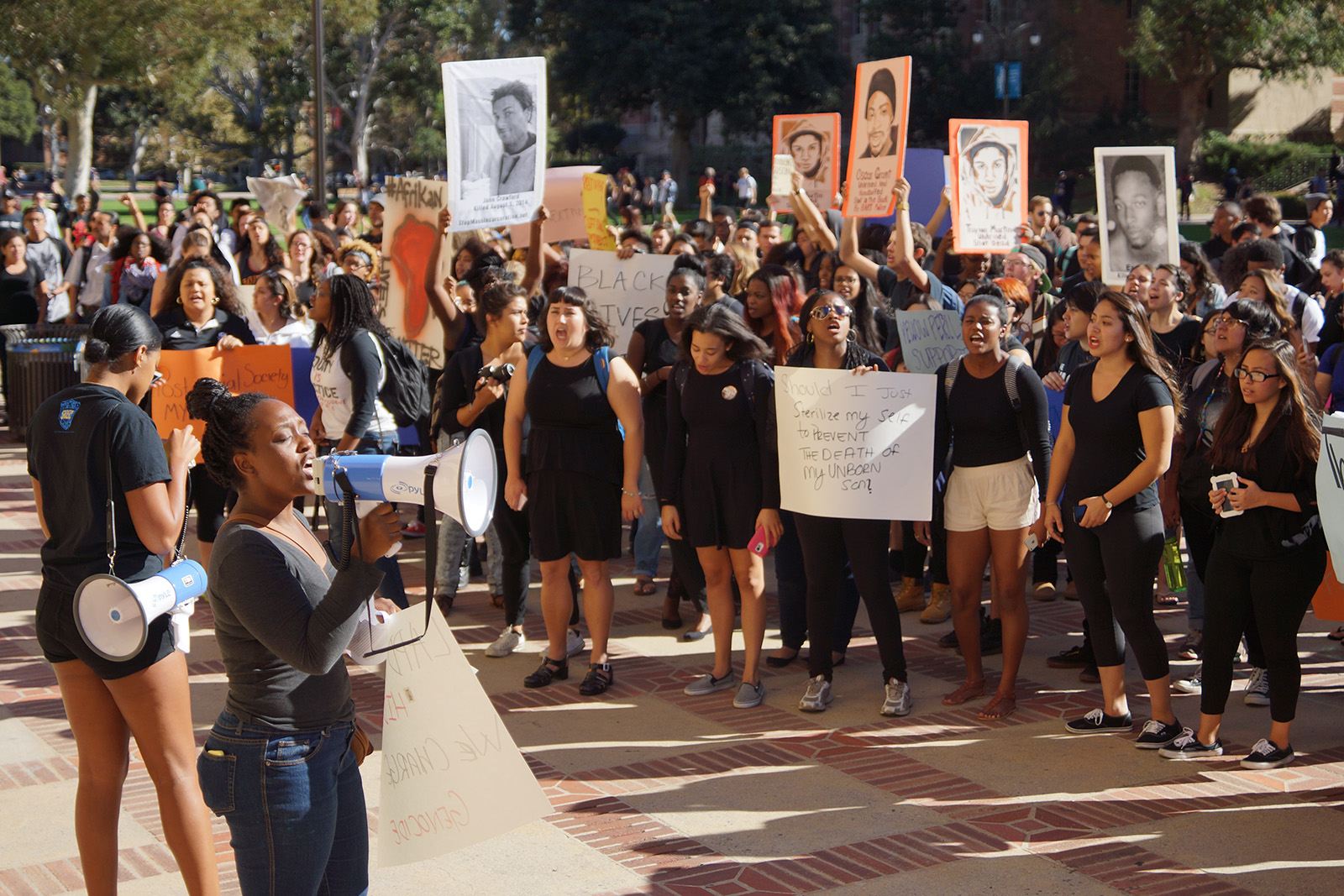Aram Ghoogasian: USAC activism task force needs proactive approach

Protests at UCLA have not taken on the size or intensity of those at other campuses. (Tamaryn Kong/Daily Bruin)
By Aram Ghoogasian
Dec. 8, 2014 1:43 a.m.
The streets of Berkeley were filled with student protesters, tear gas and riot police Saturday night.
On the same night, not a murmur was heard at UCLA.
UCLA’s student activism has paled in comparison to Berkeley’s, regarding the responses to the recent tuition hike and incidents of police brutality across the country. The Undergraduate Students Association Council, as our representative governing body, should play a large role in closing that gap.
When running for USAC Cultural Affairs commissioner last spring, one of Irmary Garcia’s platforms was to institutionalize responses to instances of hate on campus. Garcia said she organized a task force, the Cultural Crisis Response Team, this quarter to respond to crises like the Ferguson case. Creating a task force is one thing. Putting it to work, however, is another.
Garcia’s task force hasn’t accomplished anything visible so far. At a time when protests are raging nationwide and UCLA’s campus remains hostile toward student activism, the task force should do more to normalize activism and mobilize students over the rest of the academic year.
It is only in the final week of the quarter that the task force organized an event. The commission will host a townhall meeting Thursday titled “Under Protected, Over Policed” in response to the non-indictments in the deaths of Michael Brown in Ferguson, Mo., and Eric Garner in New York City at the hands of white police officers, among other social justice issues.
The event should’ve come earlier; the reaction to the Ferguson ruling was far too delayed. Making meetings such as the one coming up on Thursday more frequent and not necessarily in response to specific events would strengthen CAC’s goal to increase inter-community collaboration. This way when action is needed, students already know what to do. That’s the fundamental failure of an otherwise fairly solid idea for an event.
The goal of the townhall is to provide students with a space to organize and mobilize mass student action – two things UCLA has had a problem with in the recent past. The low turnout at a number of demonstrations such as the initial reaction to the Ferguson ruling, and the jeering that met protesters at a dining hall are good indicators of a larger problem.
As of now, a small number of students are competent organizers; these few currently lack a public forum to share tactics and strategies with the student body at large. Creating a regular meeting space for student groups can help coordinate student activism efforts, which are, for the most part, spread out and somewhat isolated.
One of the commission’s most popular institutions is the Word on Wednesday, an event held multiple times per quarter to allow students to express themselves through various forms of art. If the task force can make workshops on activism a staple, like it has done with the Word on Wednesday, the commission could provide students with the resources they need to mobilize when events that divide the campus or call for the mobilization of student activism come up again, as they inevitably will.
The importance of coordinated campus action shouldn’t be underestimated. UC Berkeley was the epicenter of the Free Speech Movement in the 1960s, a movement that still serves as a strong example of effective student power.
UCLA student protests also played a significant role in putting economic pressure on apartheid South Africa. Nelson Mandela even mentioned the University of California’s divestment from the regime in the 1980s specifically as a major event in its toppling.
Making meaningful demonstrations a normal occurrence could help to get future generations of students at UCLA, if not the current apathetic ones, to see the importance of student activism and get involved themselves.
The task force made the additional mistake of scheduling the event on Thursday of 10th week when many students will be worried about upcoming final exams. Faster, proactive planning would have helped the turnout and therefore the townhall’s effectiveness. The task force would do well to host similar events early next quarter to avoid the sloppy and late organization of this quarter’s event.
With the large student population we have at UCLA, there’s no reason why we shouldn’t be a center of effective activism. It’s a matter of establishing the proper paradigm. Institutionalizing a space for collaboration, if handled correctly, is a solid start.


